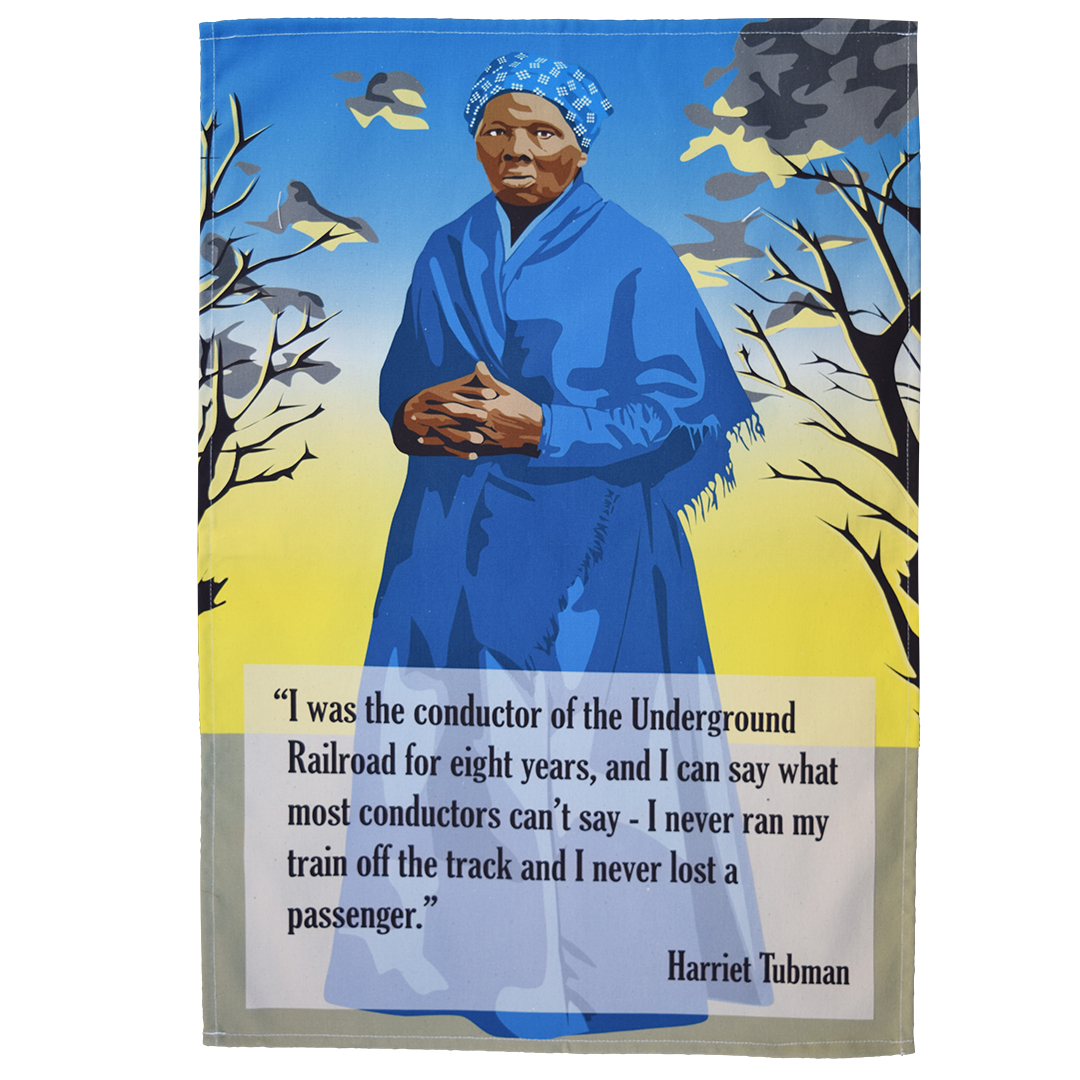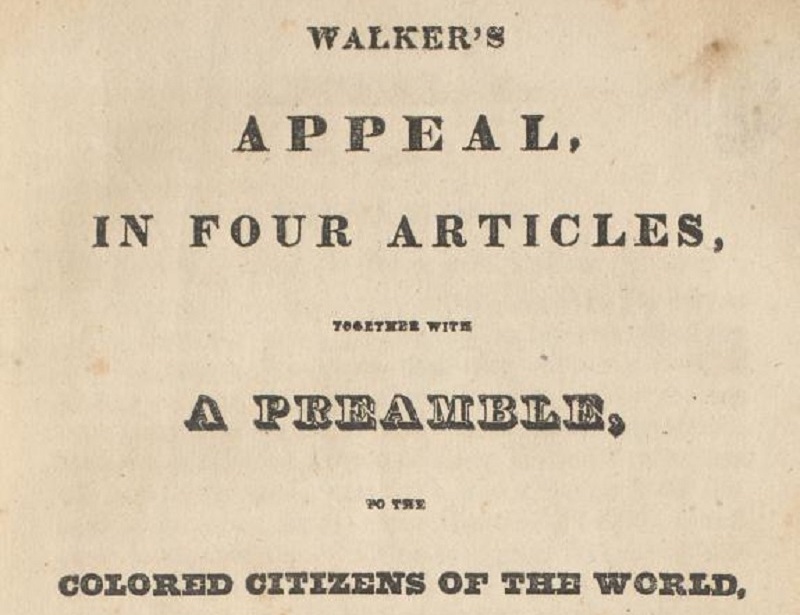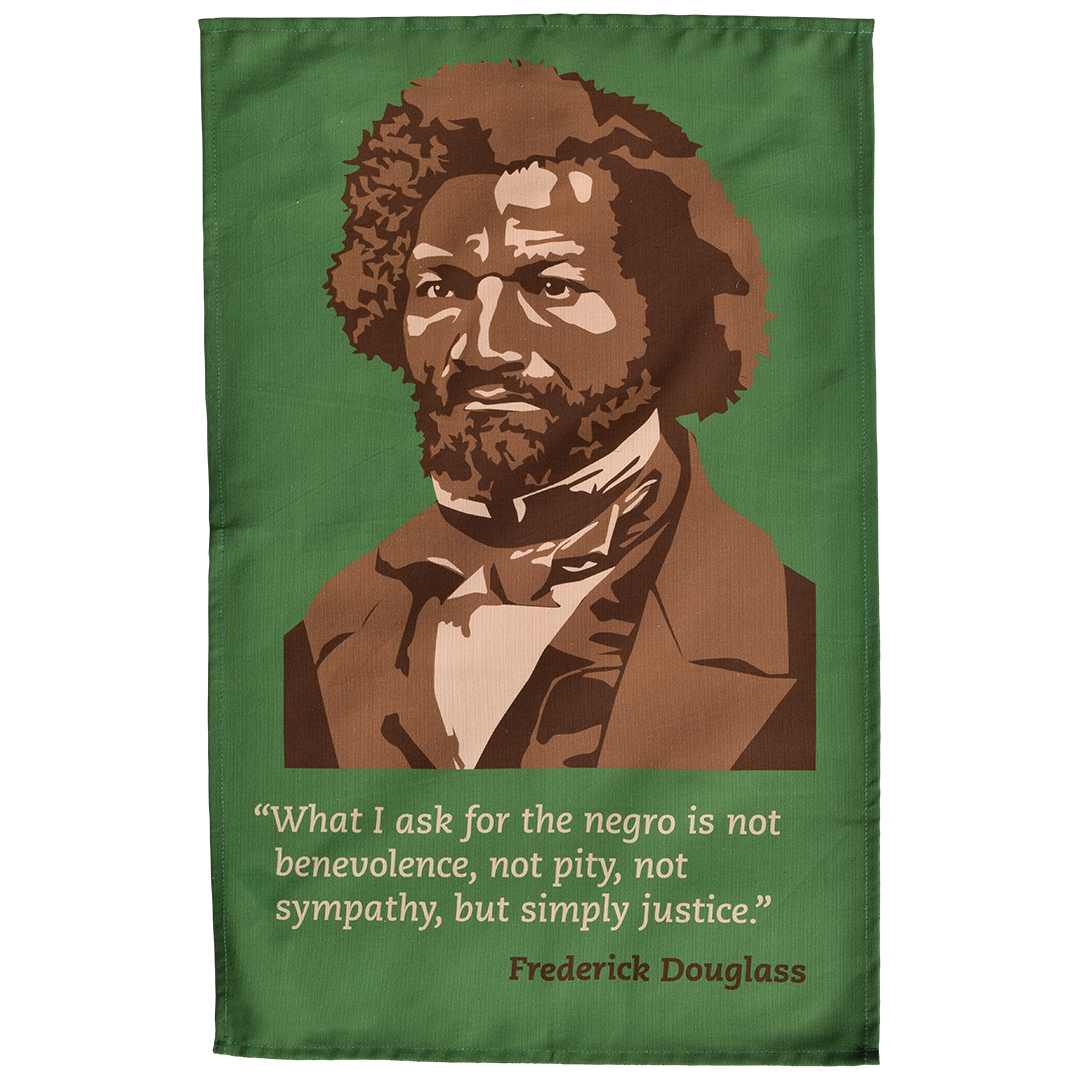A Star in the East: David Walker and the Abolitionist Struggle
Posted by Pete on Sep 28th 2021
He may not be as well known as other abolitionists, but David Walker led the way in the black freedom movement.
"Our sufferings will come to an end, in spite of all the Americans this side of eternity."
Born on this day in 1796, David Walker was a pioneer of the black freedom struggle in 19th century America.
What was different about Walker, though, is that Walker was never a slave. While other African American abolitionists like Frederick Douglass and Harriet Tubman were born into slavery, Walker was born free in North Carolina.
Though Walker’s father had been enslaved, his mother was a free woman – and in 1790s North Carolina, the child inherited their mother’s status.

Unlike Harriet Tubman, Walker was born free - but they both devoted their lives to the cause of abolition.
Click to view our Harriet Tubman tea towel
Still, Walker could not stand life surrounded by slavery:
“If I remain in this bloody land I will not live long… I cannot remain where I must hear slaves’ chains continually and where I must encounter the insults of their hypocritical enslavers.”
So he moved from Wilmington to Charleston, then on to Philadelphia. And by 1825, he’d settled for good in Boston.
Massachusetts had effectively abolished slavery in 1783, just after the end of the American Revolution. The city was home to thousands of free black men and women.
And it was here in Boston that Walker properly threw himself into the abolitionist cause.
While running a used clothing store, Walker provided refuge to runaway slaves freeing the South.
He joined the Prince Hall branch of the Freemasons in Boston, which was especially committed to abolition, and helped found the Massachusetts General Colored Association.
By 1829, Walker was the most famous abolitionist in town.
Then he published his Appeal to the Colored Citizens of the World, and became the most famous abolitionist in America.

The title page of the 1830 edition of Walker's Appeal to the Colored Citizens of the World.
The Appeal was a formidable denunciation of anti-black racism and slavery in the United States:
“We colored people of these United States are the most degraded, wretched, and abject set of beings that ever lived since the world began, and I pray God, that none like us ever may live until time shall be no more.”
Walker’s Appeal demanded the breaking of chains – not by white benevolence, but by black resistance.
“…never make an attempt to gain freedom or natural right, from under our cruel oppressors and murderers, until you see your ways clear; when that hour arrives and you move, be not afraid or dismayed.”
The message was clear: don’t be afraid to take your freedom when the opportunity arises.
Walker was making an unprecedented call for slave revolution in the United States – and slave-owners were terrified.

Walker's Appeal went on to influence the writings of countless other abolitionists, including Frederick Douglass.
Click to view our Frederick Douglass tea towel
Walker made strenuous efforts to get the Appeal distributed to as many black readers as possible.
He used abolitionist and church networks up and down the Atlantic seaboard. One paper reported in 1830 that African Americans responded to the Appeal
“…as if it were a star in the east guiding them to freedom and emancipation.”
But the slave authorities used all the powers they had to suppress it.
Several Southern states outlawed the Appeal as seditious material. People were arrested in Charleston and New Orleans for distributing it. Georgia put a price on Walker’s head - $10,000 alive, $1,000 if not…
Slave owners were afraid that a black-led rebellion might come to pass as a result of Walker’s Appeal.
And they were right to be worried, because it was just two years later, in 1831, that Nat Turner led his slave rebellion in Virginia.
But then, through the 1830s and 40s, Walker’s pamphlet fell off the radar. Many other abolitionist texts – like Frederick Douglass’s biographical narrative, for example – had taken the spotlight.
Walker’s Appeal risked being lost to history until, in 1848, another edition was published by the black clergyman, Henry Highland Garnet – who later became the first African American to address Congress.
He was helped with the reprinting work by one John Brown of Connecticut…
Thanks to Garnet and Brown, the Appeal to the Colored Citizens of the World remains an iconic abolitionist text in the US – ‘a star in the east’.
And the author, David Walker, stands tall and free with the likes of Harriet Tubman, Ida B. Wells, and Malcolm X in the radical tradition of Black History.
Key dates in Walker's life:
- 28 September 1796: David Walker is born in Wilmington, North Carolina
- 1820s: Walker moves north and settles in Boston, MA, where he sets up a clothing store on the waterfront
- 23 February 1826: Walker marries Eliza Butler, a Bostonian, with whom he had two children, Lydia, who died aged 1, and Edward, who went on to become one of the first two African Americans elected to the Massachusetts State Legislature (in 1866)
- 1827-9: Walker works as a sales agent and writer for the New York-based abolitionist paper, Freedom’s Journal
- September 1829: Walker’s Appeal to the Colored Citizens of the World published in Boston (followed by two more editions in 1830)
- Summer 1830: Walker died, probably of tuberculosis. He was buried in South Boston.

